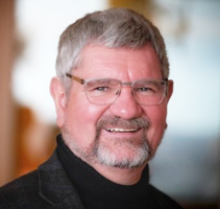
President, Alexander von Humboldt Foundation
Director and Scientific Member, Fritz Haber Institute of the Max Planck Society in Berlin
Founding Director, Max Planck Institute for Chemical Energy Conversion
Abstract: Sustainable energy systems require both free electrons and green molecules as sources and carriers of renewable energy. The molecular part is created by water splitting leading to the primary energy carrier hydrogen. This molecule can be used directly for energy recovery and for generating chemicals, fuels and structural materials. Large amounts of hydrogen must be converted in derivative molecules for storage and transport of bulk renewable energy. Many of these products will contain carbon and release CO2 at their end of life. Reduction of CO2 for recovering energy carriers or for deposition of solid carbon are required processes to retain stable the carbon cycle. None of these reactions function without hydrogen either in thermos- catalytic or electrocatalytic processes. The presentation discusses systemic aspects, the generally underestimated dimension of application and issues of catalytic materials necessary for implementation.
Bio: Robert Schlögl is a German chemist known for research in catalysis. For a long tenure he has been the director and Scientific Member of the Fritz Haber Institute of the Max Planck Society in Berlin and the the founding director of the Max Planck Institute for Chemical Energy Conversion. On 1 January 2023, Schlögl became the president of the Alexander von Humboldt Foundation – a post of highest recognition.
Schlög studied chemistry at the University of Munich, where he received his B.S .in 1979 and his doctorate in 1982. After postdoctoral studies at University of Cambridge under Sir John Meurig Thomas, at University of Basel under Hans-Joachim Güntherodt, and at the Fritz Haber Institute under Gerhard Ertl, he completed his Habilitation in Chemistry at the Technical University of Berlin in 1989. This was followed by an appointment with the University of Frankfurt as professor of inorganic chemistry. Schlögl returned to Berlin and has been director and scientific member of the Fritz Haber Institute since 1994. In 2011 he was also founding director at the Max Planck Institute for Chemical Energy Conversion.
Schlög is a researcher in catalysis who has made crucial contributions to the elucidation of the structural dynamics and functionality of heterogeneous catalysts based on inorganic solids. The focus of his work is on the investigation of polycrystalline copper, molybdenum and vanadium oxides for selective oxidation. He has led numerous research teams and had shaped the heterogenous catalysis landscape. Schlög received numerous awards and distinctions. He was awarded the Otto Bayer Award and the Schunk Prize for innovative materials. In 2015 he received the Alwin Mittasch Prize, in 2017 the Ruhr Prize for Art and Science. For 2019 Schlögl was awarded the Eduard Rhein Prize. He is also a member of the Berlin- Brandenburg Academy of Sciences and honorary professor at Technical University of Berlin and Humboldt University of Berlin.
Hosts: Iryna Zenyuk, Director NFCRC and Plamen Atanassov, on behalf of UCI Samueli School of Engineering
Share
Related Content
| Attachment | Size |
|---|---|
| 335.37 KB |
Upcoming Events
-
MSE 298 Seminar: Mechano-Electrochemical Phenomena at Ceramic Electrolyte Interfaces
-
CBE 298 Seminar: Beyond the Tailpipe - From the Science of Soot Formation to the Engineering of Carbon Nanomaterials
-
MSE 298 Seminar: Innovation In Materials Science - An Industrial R&D Perspective
-
MSE 298 Seminar: Understanding the Impact of Grain Boundary Inclination on Grain Growth Using Modeling and Simulation and Experiments
-
EECS Seminar: Mixed Conductors for Bioelectronics
